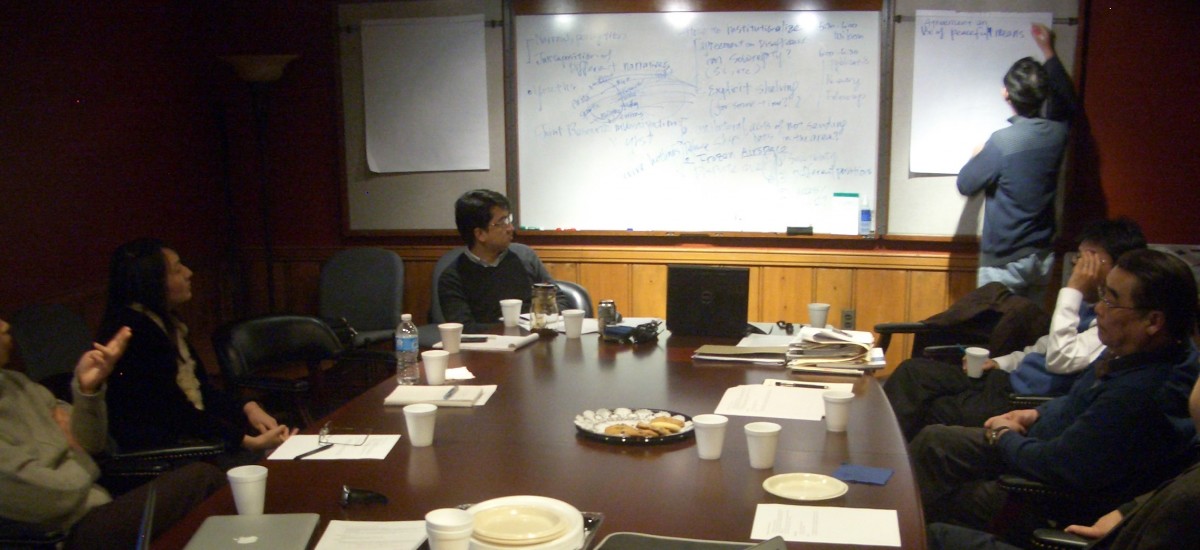
The rising tension over the disputed islands – known as Diaoyu in China and Senkaku in Japan – in the East China Sea has severely strained Sino-Japanese relations during the past few years. This tension illustrates a security crisis, with far-reaching implications for the two countries’ economic relations, domestic politics, and international relations. Importantly, the crisis has its deep historical roots in the collective memories of the two nations’ wartime experiences, and in their cumulative historical grievances that stand in the way of much-needed reconciliation. The renewed U.S. commitment to the Asia Pacific, in view of China’s rise and the U.S.-Japan alliance, adds to the complexity of the regional and global context in which the bilateral tension between China and Japan is evolving.
Given this background, this S-CAR-based initiative analyzes the multi-faceted nature of the conflict and explores practical approaches to its management and transformation. It brings together policy-oriented opinion leaders, scholars, students, and other stakeholders from different sides of the conflict for open and constructive dialogues. The initial phase of this initiative, in 2012-13, has been financially sponsored by Mr Yoshide Takeda, a George Mason alumnus and an advocate of Sino-Japan reconciliation, and coordinated by Dr Tatsushi Arai, a Fellow of S- CAR’s Center for Peacemaking Practice and Associate Professor of Peacebuilding and Conflict Transformation at the School for International Training (SIT) Graduate Institute in Vermont. Dr Arai, a Japanese citizen, partners with his long-term Chinese colleague, Dr Zheng Wang, Associate Professor in the John C. Whitehead School of Diplomacy and International Relations at Seton Hall University in New Jersey. Drs Arai and Wang are both SCAR alumni and former classmates in SCAR’s PhD program.
In late 2012, Drs Arai and Wang co-facilitated a series of two small-group dialogues at S-CAR, engaging Chinese and Japanese graduate students to explore the role of perceptions and identities in the territorial dispute. In November 2012, Dr Arai facilitated a dialogue between Chinese, Taiwanese, Japanese, and Korean peace researchers and practitioners who gathered in Mie, Japan for a peace research conference. In addition, in January 2013, Drs Arai and Wang co- facilitated a one-day Interactive Conflict Resolution (ICR) workshop for Chinese and Japanese scholars at S-CAR’s Point of View in Virginia. This Point of View dialogue became the basis of a public seminar that the Woodrow Wilson International Center for Scholars in Washington DC hosted the following day, in partnership with S-CAR. The Point of View dialogue also resulted in a publication, T. Arai, S. Goto, and Z. Wang, 2013, Clash of National Identities: China, Japan, and the East China Sea Territorial Dispute (Washington DC: Woodrow Wilson International Center for Scholars).Future activities under consideration include promoting sustained multi-track dialogue between China and Japan, engaging U.S. stakeholders in much-needed U.S.-China-Japan dialogue, and exploring concrete ways to enhance policy applications of lessons learned.
The following videos were taken during a seminar on China-Japan territorial disputes at the Wilson Center in Washington DC, January 2013.



